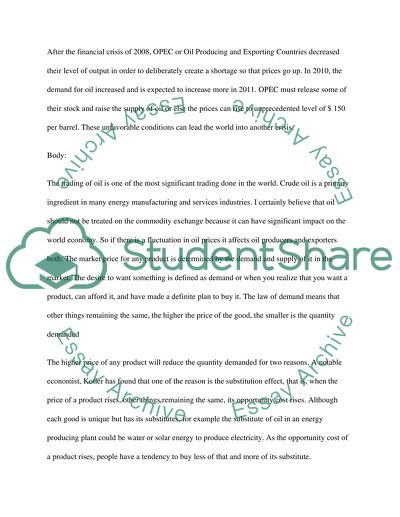Cite this document
(“Oil prices and its effect on the global market Term Paper”, n.d.)
Retrieved from https://studentshare.org/environmental-studies/1417927-oil-prices-and-its-effect-on-the-global-market
Retrieved from https://studentshare.org/environmental-studies/1417927-oil-prices-and-its-effect-on-the-global-market
(Oil Prices and Its Effect on the Global Market Term Paper)
https://studentshare.org/environmental-studies/1417927-oil-prices-and-its-effect-on-the-global-market.
https://studentshare.org/environmental-studies/1417927-oil-prices-and-its-effect-on-the-global-market.
“Oil Prices and Its Effect on the Global Market Term Paper”, n.d. https://studentshare.org/environmental-studies/1417927-oil-prices-and-its-effect-on-the-global-market.


